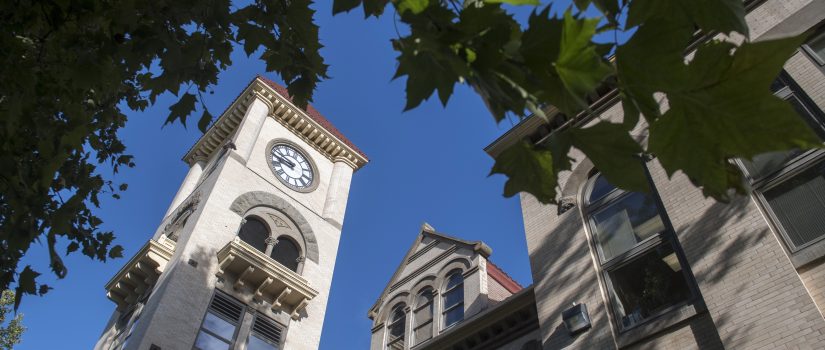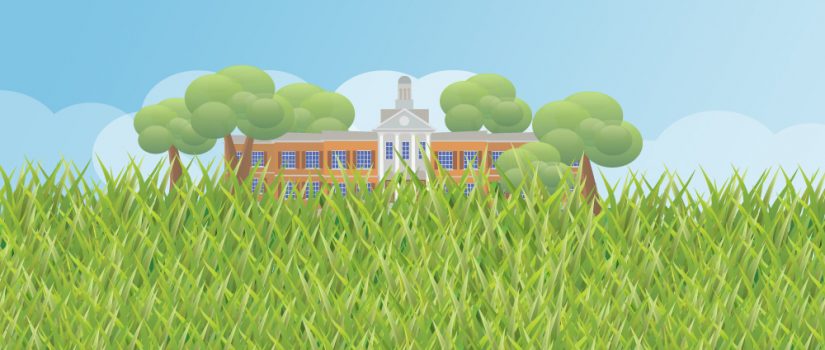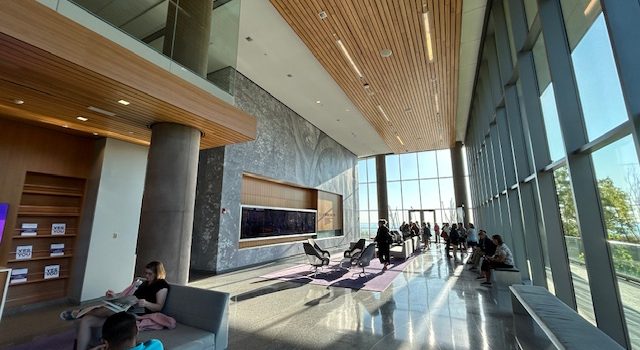Getting to Know Whitman College (WA)
Whitman College is a selective liberal arts college that is one of the Colleges That Change Lives. It has attained other accolades for value and the academic experience. This is a small school (fewer than 1,400 undergrads) with a very nice campus in a small college town, Walla Walla, Washington, that has around 30,000 residents.
Whitman has one of the more picturesque settings for any college anywhere. But it takes a lot of time to get there. Your journey from Seattle will take 4 1/2 hours by car, or you can connect to Walla Walla’s regional airport from SeaTac to get to campus. For a frame of reference, you can get to Providence or Washington DC from Central New Jersey in less than 4 1/2 hours. But the setting must be a big draw for those who take the journey to visit. Two-thirds of Whitman’s students student body comes from outside Washington State.
Adam Miller, Director of Admissions at Whitman College agreed to talk with me about Whitman College. I invite you to listen now.
I realized that I could only take a virtual look at Whitman. But the school reminded of Juniata College in Pennsylvania for the isolated location, global studies programs and a field station for biological and environmental sciences. However, Whitman is a more selective school, and its First Year Seminars, which include a learning community, put more demands on a new freshman. But over 85 percent of each freshman class that has entered since 1997 has graduated within four years. That’s an impressive accomplishment for any college of any size, public or private.
To my surprise, just over a third of the students live off campus; most selective schools have everyone living on campus. But I have not seen a small school with so many residence life options. Greek life attracts about a third of the student body. It’s fair to say that students who seek a campus-based social life, with outdoor activities on campus and close by, will like Whitman more than those who want a more urban setting.
‘Whitties’ as Whitman College undergrads call themselves, have an interesting set of academic options.
Whitman has a set of distribution requirements that appear to make it easy to double major or carry multiple minors. And you will never have a class with 40 or more students.The college also has a fund to provide stipends for internships. There’s also a summer research fellowship with the Mayo Clinic for science majors. Here are some highlights within the academic programs:
- Instead of offering an Environmental Studies major, Whitman combines Environmental Studies with several other social, natural and physical sciences, including Anthropology, Economics, Geology and more. Those interested in the environment can also participate in a program called Semester in the West.
- The most unique major, Biochemistry, Biophysics, and Molecular Biology, aka ‘BBMB‘, blends all of the “hard biology courses” together.
- Whitman might also be one of the smallest schools to offer Astronomy separately as well as combined with a Physics major.
- Those who might want to pursue a business, legal or political career might want to consider the program in Rhetoric, Writing, and Public Discourse as a minor or second major.
It has not been as hard to get into Whitman as is it to get into higher profile selective liberal arts colleges such as Amherst, Williams and Swarthmore.
Over half of the students who applied to join each class that has entered since 2016 were accepted. Whitman went test optional beginning in 2018. For those who submitted scores since then, the median SAT would be 1350 and the median ACT Composite would be a 30. The median high school GPA has been between 3.7 and 3.8. These numbers are probably around the median for students who are about to enter a school such as Rutgers-New Brunswick or Penn State-University Park, but would not get them into their honors colleges.
And unlike the ultra-selective liberal arts colleges, Whitman offers some generous merit and talent based awards.
Over half of the freshmen who arrived in 2019 received need-based scholarships that averaged over $40,000. Forty percent of the class received merit awards that averaged over $16,000. Washington State admits whose families earn less than $80,000 can come to Whitman tuition free. Students in the Class of 2019 who took out loans owed just over $18,000. They could have borrowed up to $27,000 over four years through the Federal Student Loan Program. Whitman could turn out to be the rare small private college that could cost a family less than the Honors College at Home State U. If you like what you see and hear about this school, you can get an early read on financial aid before you apply. That’s a rare and special opportunity that I wish more private colleges would offer.
It’s rare to find a resourceful liberal arts college like Whitman that has achievable admissions and aid that would draw someone who might otherwise consider a public option.
As a New Jersey resident, I saw the academic, aesthetic and financial attractions to Whitman College. I really liked the school for someone who is interested in the environment and the sciences. The setting really sets the school apart for people interested in those programs. Even when taking a virtual tour, I felt that I was at a more expensive and more selective school.
But I strongly recommend two visits, in person or virtual, before you apply and after you are accepted. Small liberal arts colleges that are located in more isolated places have their own unique campus-based cultures. Make sure that you can make friends as you work towards your degree and possible career paths. You have to ask yourself: can I live here for four years? It’s a long schlepp for almost anyone from anywhere to get there.
Listen now as Adam Miller and I chat about Whitman College!
Need help on the journey to college? Contact me at stuart@educatedquest.com or call me at 609-406-0062.
Want to know more about me? Check out these podcasts!
Listen to my talk, College Is A Learning AND Living Community, hosted by Dr. Cynthia Colon from Destination YOUniversity on Voice of America Radio!
Listen to my talk, What Exactly Is a Good College? hosted by test-prep experts Amy Seeley and Mike Bergin on Tests And The Rest!




